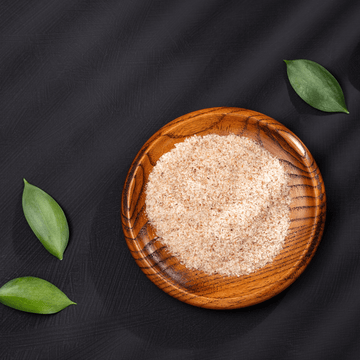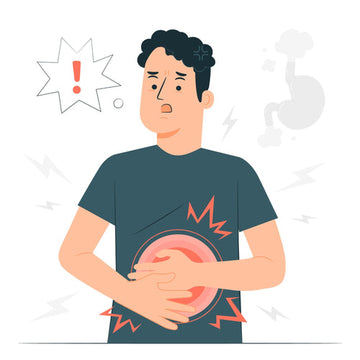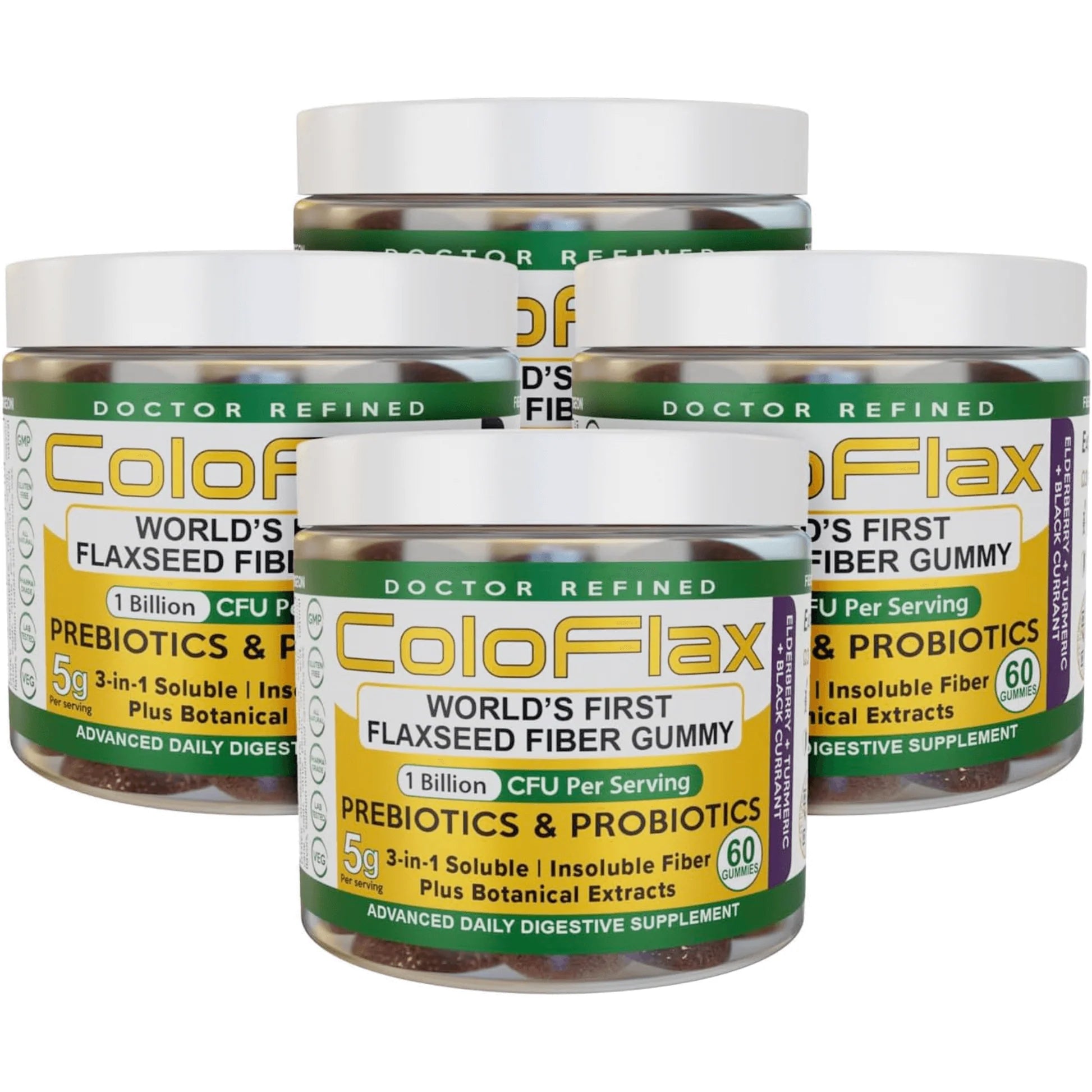But what exactly is psyllium husk and how does it work? There’s a lot to cover and a lot to learn, so let’s dive in.
Where Does Psyllium Husk Come from?
Psyllium comes from the plant Plantago ovata (also known as ispaghula). Native to Iran, the Mediterranean and North Africa, the plant now grows throughout South and Central Asia and can also be found in North America.
Plantago ovata produces thousands of little seeds, all coated in a gel-like substance. It’s this husk that is extracted to produce psyllium.
How Do You Take Psyllium Husk?
Psyllium is added to water and then quickly consumed. The dosage varies, but the recommended dose is about 1 teaspoon taken two to three times a day. Some preparations contain additional flavorings and other additives, so you may need to take more to get the same amount of psyllium. Check the label for exact dosage instructions.
If you’re taking psyllium for the first time, start with a low dose and take it just once per day for several days. Monitor its effects and make sure there are no adverse reactions before increasing the dose.
After taking psyllium, drink plenty of water throughout the day. Drinking water is always a good habit, but it’s especially important when it comes to psyllium. As discussed later in this guide, consuming too much psyllium and not enough water could have disastrous consequences for your gut health.
How Does Psyllium Husk Work?
Psyllium must be consumed quickly after mixing with water. If not, it will form a gelatinous clump that’s no longer drinkable. It’s not very pretty, but it gives you an idea of how psyllium husk works and shows you how effective it can be.
Once consumed, psyllium will form the same gelatinous clump, steadily absorbing water, growing in volume, and passing through your gut. This bulky stool will stimulate movement in the intestines while pushing out waste.
It’s for this reason that psyllium husk is often sold as a laxative, but in essence it’s just a high-fiber supplement, and fiber, by its nature, promotes bowel movements when consumed in adequate quantities.
What are the Benefits of Psyllium Husk?
Psyllium husk doesn’t have much in the way of micronutrients. Unlike flaxseeds, it’s not high in omega-3 fatty acids. It’s basically just a cheap and readily available form of fiber, but as noted above, fiber is pretty potent stuff. Some of the most noteworthy benefits of psyllium husk (backed by clinical trials) include:
It Can Help to Ease Constipation
Psyllium is very effective at treating constipation. As noted above, it works by drawing water into the bowel and creating more bulk. In fact, one study found that it was more effective at this than docusate, a type of stool softener. It increased the total water weight of the stool while also increasing the number of bowel movements (3.5 per week as opposed to 2.9 per week). (1)
And that’s when comparing it to another effective laxative. When compared to placebos, the results are far more noticeable.
It May Promote Weight Loss
Fiber fills you up, and dosing with psyllium before or after a meal could prolong satiety and reduce cravings.
In one study, researchers tested the effects of varying proportions of psyllium over differing time periods. One involved 3.4g, 6.8g, and 10.2g of psyllium consumed before breakfast and lunch for 3 days. Another gave participants 6.8g before breakfast and lunch for the first 2 days and before breakfast only on the third day. (2)
In the first group, all participants noted an improvement in satiety and a reduction in hunger. The more psyllium they took, the greater the effects, although the middle dose of 6.8g produced the most consistent results.
The second study achieved similar results, indicating that around 7 grams of psyllium taken at least once per day is effective at combating hunger.
It Can Help with Blood Sugar Management
Fiber supplements are known to balance blood sugar levels and are often recommended to people with diabetes. In one 12-week study, psyllium husk was given to 51 individuals with type 2 diabetes and chronic constipation.(3)
Participants recorded notable improvements in constipation symptoms, as well as glucose and lipid values. What’s more, there were no adverse effects noted.
The psyllium was administered in pre-mixed cookies, with participants receiving around 10g twice per day.
It Could Reduce Levels of “Bad” Cholesterol
We have previously talked at length about the cholesterol-lowering effects of fiber, so it’s no surprise that psyllium also delivers the same effects.
A study of 47 healthy teenagers (44% of which were obese or overweight) found that just 6g of psyllium was enough to slightly lower fat levels while also lowering LDL cholesterol, known as “bad” cholesterol.(4)
It Can Help with Diarrhea
As discussed in a previous guide to the causes and solutions of diarrhea, many people incorrectly assume that fiber will somehow make diarrhea worse. In fact, the “bulking” mechanism could remedy the issue. A bulky stool moves slowly through the bowel, thus preventing the sort of rapid movement that leads to watery stools.
These facts are supported by several studies, including one that found psyllium could delay gastric emptying, increase transit time, and even reduce the buildup of gasses responsible for fermentation and discomfort. (5)
Are There Any Side Effects of Taking Psyllium Husk?
Psyllium husk is very well tolerated and there are few known issues. It’s not completely devoid of risk though, and there are some things you need to keep in mind.
Firstly, consuming an excessive amount of psyllium could produce flatulence and gastrointestinal discomfort. It may leave you feeling bloated and even cause abdominal pain.
Such large doses could also inhibit the absorption of certain medications, so contact your physician in advance if you take any medications.
It is possible to be allergic to psyllium, and the risk of such reactions increases if you’re taking a prepared supplement that uses other additives. In such cases, you may experience symptoms such as rashes, itching, and even breathing difficulties.
Allergic reactions are rare and even when flatulence and discomfort is present, it’s usually short-lived. However, there is one more consideration that could make psyllium very dangerous…
Can Psyllium Husk be Dangerous?
A case report published in 2018 tells the story of a 21-year-old man who presented to the ER with abdominal pain and constipation that had lasted for 5 days. He was given psyllium and sent home, only to return 2 days later with more pain and still no bowel movements.
Doctors discovered that the patient hadn’t been drinking enough water with the psyllium and this had caused a bowel obstruction. Essentially, the gelatinous blob that forms when the husk comes into contact with water had dried and hardened inside the intestines.
This is just one of several recorded bowel obstructions involving psyllium. If you want to learn more about the risks of taking too much psyllium and not drinking enough water, check out this video on YouTube. It tells the story of a man who consumed 2 liters of the substance and suffered from some seriously unpleasant side effects.
Always take your psyllium husk with water and make sure you drinks lots of water throughout the day. This is especially important if you take medication known to cause constipation, such as opioids. Opioid pain medication is known for causing dry, hard, and difficult-to-pass stools, and if you add psyllium husk to the mix and don’t drink enough water, it could lead to a serious obstruction.
What are the Best Alternatives to Psyllium Husk?
If psyllium husk isn’t working for you or you want something that provides a more holistic approach to digestive health, here are a few alternatives:
ColoFlax
ColoFlax is a fiber gummy that contains three proprietary blends:
- ColoFlax: A blend of soluble and insoluble fiber, including lignan-rich flaxseed.
- ColoBiome: A probiotic blend with over 1 billion CFU.
- ColoShield: Botanical extracts that target free radicals and help to maintain overall health and well-being, including turmeric, black currant, and elderberry extracts.
It’s a pharmaceutical-grade, gelatin-free, gluten-free, all-natural fiber supplement made to the highest standard using current good manufacturing processes. Just take 2 gummies a day to boost your fiber intake by 5g and receive a shot of omega-3 fatty acids, antioxidants, probiotics, prebiotics, and micronutrients.
Methylcellulose
Methylcellulose is a pretty bizarre and wonderful substance. Derived from cellulose, it’s a thickening-agent and emulsifier found in a wide number of commercial prepared foods. It’s also a bulk-forming laxative that is not digested and considered widely safe, just like psyllium.
Also like psyllium, methylcellulose is cheap. It works by creating more bulk in the gut and drawing water inside, allowing for smoother and slower transition.
Polycarbophil
Polycarbophil is a synthetic polymer that works must like methylcellulose and psyllium. And just like these medications, it requires adequate water intake, as it’s the fluid that creates the bulk and moves everything along.
High-Fiber Foods
Psyllium is just an easy way to consume a large amount of fiber. If you don’t have any to hand or want a more natural and holistic approach, add more fiber to your diet. Look for foods that are rich in soluble fiber, as this type of fiber dissolves in water and helps to create a bulk.
The best sources of soluble fiber include peas, beans, lentils, and bran. You can also pick up some ground flaxseeds or chia seeds, adding the occasional scoop to cereal, soup, or salad. Still not convenient enough for you? Add a scoop of chia and flaxseed to a smoothie, throw in plenty of fresh fruits, and you have an incredibly delicious high-fiber drink.
Summary: Psyllium Husk
A high-fiber diet can support heart and digestive health and may also help to balance blood sugar levels. It’s vitally important to ensure you’re getting enough fiber, and yet as many as 95% of Americans don’t consume adequate quantities.
You can get fiber from fruits, vegetables, beans, legumes, seeds, and supplements (including ColoFlax, which contains both soluble and insoluble fiber, among other things). If you do decide to take psyllium husk, make sure you consider the potential side effects, talk with your doctor if you have a preexisting medical condition or take prescription medications, and drink plenty of water!
You should also eat more fruits and vegetables and ensure you’re not relying 100% on psyllium husk to meet your fiber needs.
References
Frequently Asked Questions about Psyllium Husk
1. What is Psyllium Husk?
Psyllium husk comes from the seeds of the Plantago ovata plant, native to Iran, the Mediterranean, and North Africa. It is a natural, high-fiber supplement known for its laxative effect and is widely used to ease constipation, promote weight loss, and manage blood sugar levels.
2. How is Psyllium Husk Consumed?
Psyllium husk is mixed with water and consumed quickly to prevent it from forming a gelatinous clump. It is essential to drink plenty of water throughout the day when taking psyllium to avoid gastrointestinal issues.
3. What are the Benefits of Psyllium Husk?
Psyllium husk aids in easing constipation, promoting weight loss, managing blood sugar levels, reducing “bad” cholesterol, and helping with diarrhea.
4. Are There Any Side Effects of Taking Psyllium Husk?
While generally well-tolerated, psyllium husk can cause flatulence, gastrointestinal discomfort, and allergic reactions in some individuals. It is crucial to consume it with adequate water to avoid bowel obstructions.
5. Can Psyllium Husk be Dangerous?
Yes, if not consumed with enough water, psyllium husk can lead to bowel obstructions. Always ensure adequate hydration when taking this supplement.
6. What are the Alternatives to Psyllium Husk?
Alternatives include ColoFlax, a fiber gummy supplement; methylcellulose, a bulk-forming laxative; polycarbophil, a synthetic polymer; and high-fiber foods like peas, beans, lentils, and bran.
7. How Does Psyllium Husk Aid in Weight Loss?
Psyllium husk promotes satiety and reduces hunger, making it a helpful supplement for weight loss. Consuming it before meals can lead to reduced food intake.
8. How Does Psyllium Husk Affect Blood Sugar Levels?
Psyllium husk can balance blood sugar levels and is beneficial for individuals with type 2 diabetes and chronic constipation, as shown in clinical trials.
9. How Does Psyllium Husk Help with Diarrhea?
Psyllium husk forms a gel-like substance that slows down bowel movements, making it effective in managing diarrhea by creating bulkier stools.
10. How to Safely Consume Psyllium Husk?
Start with a low dose and monitor its effects. Increase the dose gradually and ensure to drink plenty of water to avoid gastrointestinal issues and bowel obstructions.






